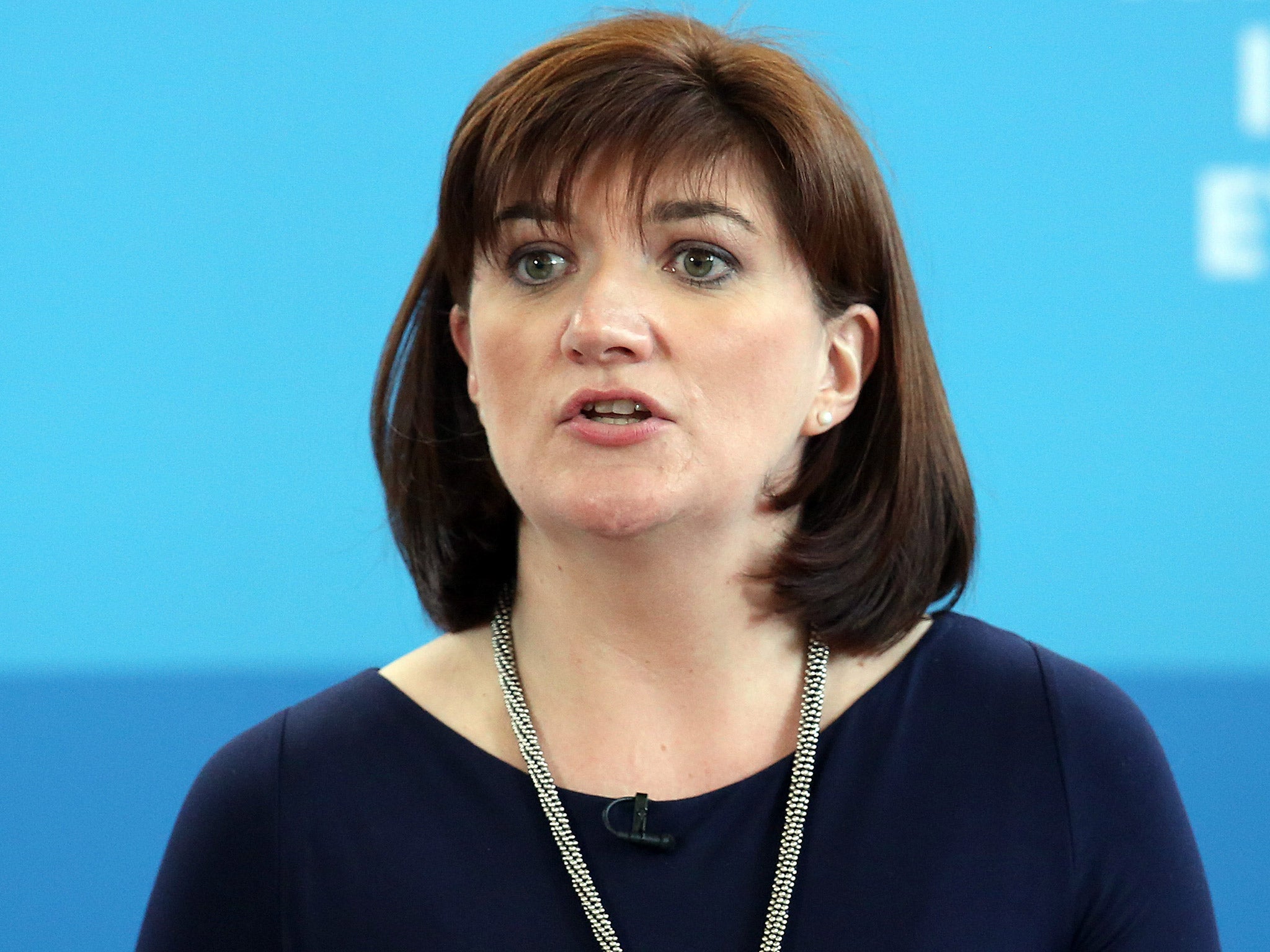Nicky Morgan made 'error of law' removing non-religious views from GCSE RE curriculum, High Court rules
The verdict was a victory for three families who have been seeking a judicial review of the decision

Education Secretary Nicky Morgan made “an error of law” in removing non-religious views such as humanism from the GCSE religious studies curriculum, the High Court has ruled.
The verdict was a victory for three families - backed by the British Humanist association - who have been seeking a judicial review of the decision.
Mr Justice Warby ruled there had been “a breach of the duty to take care that information or knowledge included in the curriculum is conveyed in a pluralistic manner”.
However, the judge made it clear: “It is not of itself unlawful to permit a RS(religious studies) GCSE to be created which is wholly devoted to the study of religion.”
Ms Morgan’s decision, though, asserted that the new GCSE would “fulfil the entirety of the state’s RE duties” which was “an error of law in her interpretation of the education statutes”.
It was “a false and misleading statement of law which encourages others to act unlawfully”.
His verdict was hailed as a victory by the families who brought the case - one of whom, Kate Bielby, who brought the case with her daughter, Daisy, said: “My daughter and I are delighted by today’s decision and the clear statement that it makes in support of equality of religion and belief.
“I am confident that whatever changes are introduced on the back of this judgement, Religious Studies will be a fairer, more inclusive subject, benefitting all children whatever their religious or non-religious beliefs.”
The Department for Education said it would “carefully consider” the judgement before deciding upon its next move.
It stressed that the judge’s comments had made it clear that the new GCSE “is in no way unlawful”. It was being interpreted that schools would have to teach about non religious views as part of the religious studies syllabus but they would not have to be part of the GCSE exam.
The BHA said further meetings would now take place between the two parties to determine the way ahead.
Changes to the syllabus announced in February insisted pupils should study at least two religions - giving priority to Buddhism, Christianity, Hinduism, Islam, Judaism and Sikhism.
In his judgement, the judge indicated his ruling applied only to schools which did not have a religious character. Faith schools were covered by different provisions under the 1998 School Standards and Framework Act.
Andrew Copson, chief executive of the BHA, described the decision as a “stunning victory for the three humanist families who stood up to the Government on this issue”.
“We look forward to working with the Government to ensure that the changes required by the judgement are implemented and hope they will use this as an opportunity to improve the GCSE of all children,” he added.
Subscribe to Independent Premium to bookmark this article
Want to bookmark your favourite articles and stories to read or reference later? Start your Independent Premium subscription today.

Join our commenting forum
Join thought-provoking conversations, follow other Independent readers and see their replies